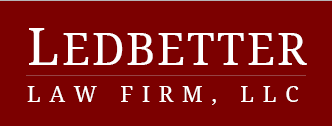Bankruptcy “Do’s”
The most important thing to do when filing bankruptcy is to be completely truthful in what you tell your attorney, in the information you disclose in your bankruptcy schedules and statements, and in the answers you provide to the bankruptcy trustee.
The documents a client files are filed under penalty of perjury. It is a crime to knowingly put false information on bankruptcy documents which are filed with the court and/or to give false testimony during one’s trustee meeting.
Another important “do” is to cooperate completely with the bankruptcy trustee. In some instances clients must turn over tax refunds to the trustee. Failure to cooperate with the trustee with regard to turning over the tax refund or other failure to cooperate with the trustee in a Chapter 7 case may result in the revocation of the client’s discharge, which means the client would still owe any debts the client owed prior to the filing of their case and that the client would never be able to discharge those debts in the future.
Bankruptcy “Don’t’s”
An important “bankruptcy don’t” is: don’t repay family members, friends, or business associates money owed to them within one year before filing bankruptcy. If this “don’t” is disregarded, the bankruptcy trustee may be able to fully recover the money owed to the family member, friend, or business associate paid within one year prior to the bankruptcy filing, by lawsuit and garnishment if necessary.
Another bankruptcy “don’t” is don’t pay extra money above the minimum payments owed to secured creditors such as mortgage lenders and vehicle lenders within the ninety (90) days prior to the filing of the bankruptcy case. The bankruptcy trustee may recover any extra monies paid to such creditors within the ninety (90) days prior to filing.
An additional thing to avoid is to avoid is any misleading communications to your bankruptcy attorney, trustee, or court. Remember that “a half truth is a whole lie.” Be sure that all your information you provide whether in printed form or in testimony is fully accurate to the best of your knowledge, without any intent to mislead.
